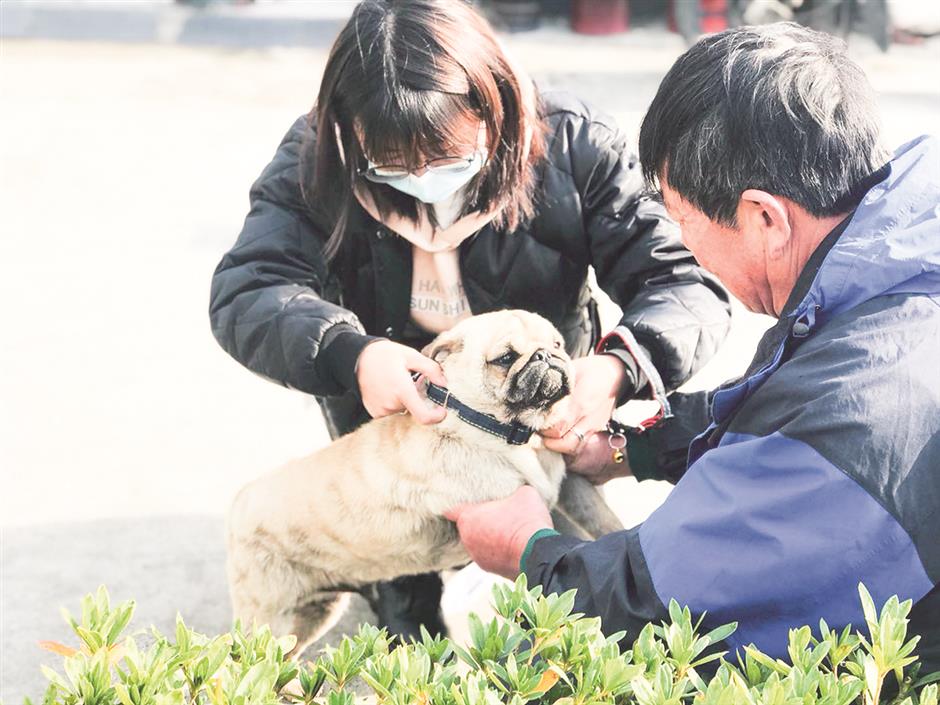Village pets given rabies injections in Songjiang

A 3-month-old bulldog from Lianjian villager Wu Bingyu’s house has its first rabies vaccine, its household and owner information registered, and will wear a special collar marked with its registration number.
Dogs in rural areas in Songjiang are gradually being offered registration for their household and owner information as the district launched its rabies immunization pilot village construction in six of its villages in early 2020.
In Lianjian Village in the district’s Chedun Town, one of the six pilot villages, a 3-month-old bulldog from villager Wu Bingyu’s house completed its “household registration” recently.
According to new canine keeping rules in the village, dogs over 3 months old are required to have their first rabies vaccine, be registered with their household and owner information and wear a special collar marked with a number.
Wu’s dog was vaccinated, registered and granted a collar marked No. 118.
“Normally each household in a pilot village can only raise one dog and we will accommodate those stray dogs. Meanwhile, registered dogs will receive a rabies vaccine and the cost will be covered by the government,” said Li Min, deputy chief of Songjiang Animal Disease Prevention and Control Center.
Adjacent to industrial zones, Lianjian Village accommodates a large number of tenants. When they leave the area, some of them will abandon their pet dogs, causing a large number of strays and frequent dog bites among residents, according to Chen Liang, deputy chief of the village committee of Lianjian Village.
“The current limit on domestic dog numbers in each household and our accommodation of stray dogs greatly reduce the total dog numbers in the village. If some registered dogs cause wounds on people, the dogs can be traced through their collar numbers,” Chen added.
Animal disease prevention staff have also raised the rabies vaccine injection frequency in the village from once in a year to once in a season, according to the Chedun Agricultural Service Center.
















